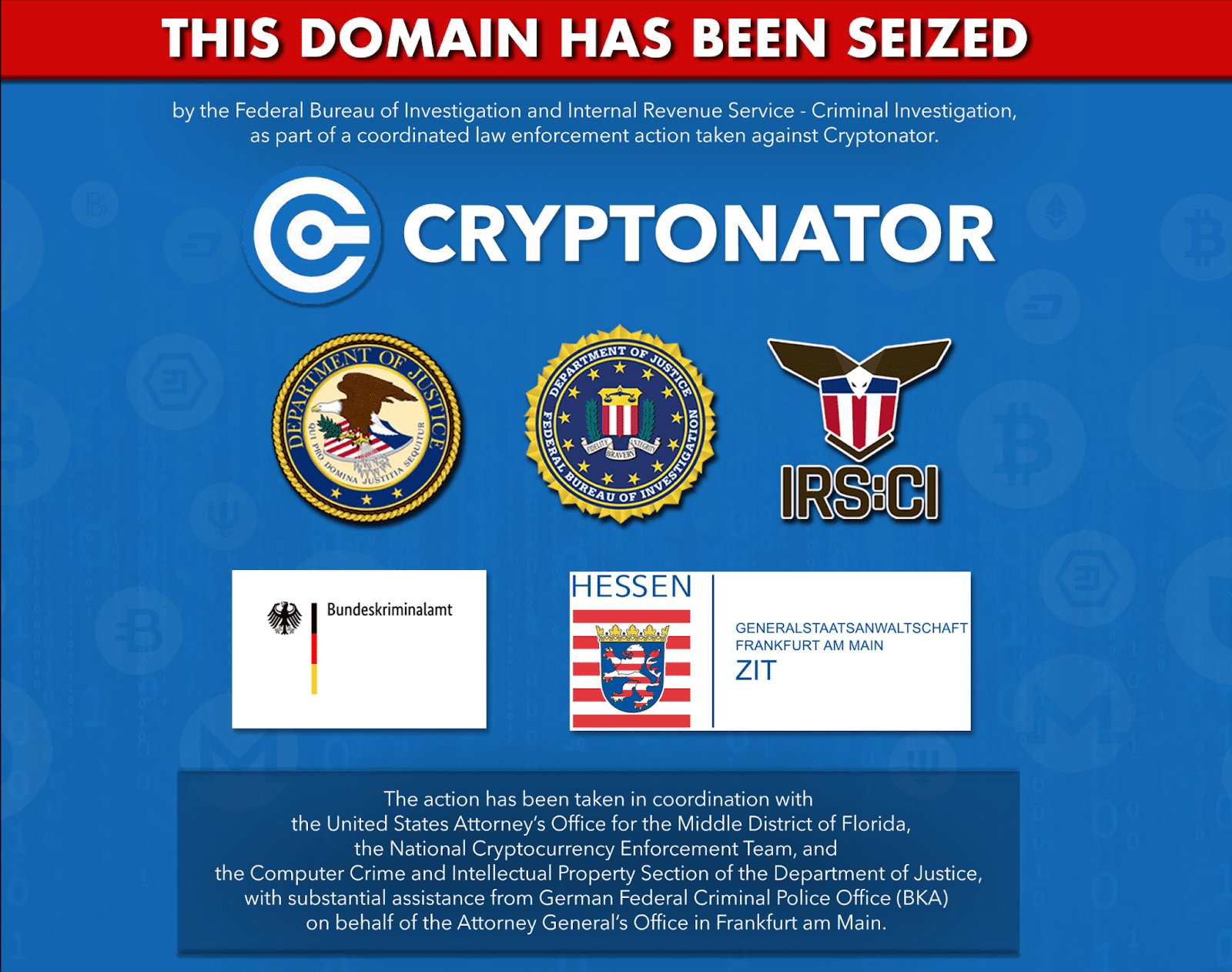
The United States Department of Justice has charged Roman Pikulev with creating and operating the unlicensed cryptocurrency exchange Cryptonator, through which over $235 million in illegal funds were processed.
According to the indictment, Pikulev and his accomplices operated Cryptonator from 2014 until March 2023. The platform facilitated an international money laundering scheme, primarily serving criminals. Cryptonator accepted funds obtained from numerous computer hacks, ransomware attacks, fraud, and identity theft.
Cryptonator was never registered with the U.S. Financial Crimes Enforcement Network (FinCEN), which constitutes a federal offense. The Department of Justice claims that the platform lacked significant anti-money laundering processes and an effective control program. Pikulev was aware that the funds he processed were obtained through criminal activities or intended to support criminal endeavors.
Cybercriminals used the platform to exchange cryptocurrency and withdraw funds into fiat currency. Pikulev integrated features into Cryptonator that anonymized the source of the funds. In official documents, Pikulev also used the alias “Boss.” He managed the platform through multiple IT providers in the United States and advertised on American social media to promote the service.
Investigators obtained a search warrant for the email address Pikulev used to register cryptonator.com. The platform processed over 4 million transactions totaling $1.4 billion, with Pikulev receiving a small percentage from each transaction. According to TRM Labs, the information reveals numerous transactions and connections between Cryptonator and other criminal markets, including Finiko, Blender, Hydra Market, Bitzlato, and Garantex.
Bitcoin addresses controlled by Cryptonator directly and indirectly sent or received:
- $25,000,000 with darknet markets, fraud, and carding shops
- $34,500,000 with scam addresses
- $80,000,000 with high-risk exchanges
- $8,000,000 with addresses associated with ransomware groups
- $54,000,000 with addresses associated with hacks and crypto theft operations
- $34,000,000 with icryptocurrency mixing services
- $71,000,000 with sanctioned addresses
Pikulev used identification documents from various countries to register websites and email addresses. The Department of Justice did not respond to inquiries about Pikulev’s whereabouts or whether he has been apprehended.
Related Posts:
- Report: the number of thefts targets cryptocurrency exchanges soared
- Lazarus Exposed: $200M Crypto Laundering Scheme Revealed